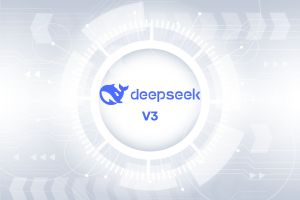The Rise of Autonomous Agents: A New Era of Competition
The AI community is buzzing this week as OpenAI dropped a bombshell: the open-source release of its first-ever Agent SDK and Responses API, tools designed to turbocharge the development of intelligent, collaborative AI agents. But this isn’t just another tech update – it’s a direct challenge to Manus, the Chinese AI startup that has been making headlines with claims of building the world’s first “universal agent”. Let’s unpack what this means for developers, businesses, and the future of AI automation.
Why OpenAI’s Move Matters
For months, Manus has dominated the conversation with its “miracle” product – promising capabilities that range from in-depth stock analysis to generating massive PowerPoint presentations from a single prompt. Despite its flashy demos, Manus remains invite-only and shrouded in mystery, with critics questioning its actual performance. In contrast, OpenAI’s decision to open-source its Agent SDK, a toolkit that allows developers to build multi-agent systems for automating complex workflows.
The timing is no accident. OpenAI’s CEO, Sam Altman, has repeatedly called 2025 the “Year of the Agent,” and this release is a clear attempt to reclaim the spotlight from Manus while democratizing access to advanced AI tools.
OpenAI vs. Manus: Key Comparisons
Let’s break down how these two players stack up:
| Feature | OpenAI Agent SDK | Manus |
| Open-Source | Yes | No (invite-only, closed beta) |
| Core Strength | Multi-agent collaboration, dynamic task delegation, built-in tools (e.g., web/file search) | Claims of “universal” task execution (e.g., PPT generation, data analysis) |
| Market Focus | Enterprise automation (e.g., e-commerce, logistics) | Broad consumer/enterprise use cases, but limited real-world validation |
| Benchmarks | Not explicitly stated | Boasts SOTA results on GAIA benchmark (though unverified) |
| Adoption | Already used by Coinbase, Box for rapid prototyping | Hype-driven, but no public adoption data |
What Makes OpenAI’s SDK a Game-Changer?
- Multi-Agent Collaboration: Imagine a global e-commerce company using separate AI agents for language translation, inventory checks, and customer support – all working in sync. That’s the power of OpenAI’s framework, which enables dynamic task handoffs between agents.
- Responses API: This upgrade to the classic Chat Completions API integrates tools like web search, file parsing, and even computer control (think: automating clicks and keystrokes!). Developers can now build agents that research, analyze, and act – all in one flow.
- Transparency & Safety: Built-in “guardrails” monitor inputs/outputs, and a process-tracing feature lets developers debug agent behavior – a nod to growing concerns about AI reliability.
Meanwhile, Manus remains a black box. While its demos are flashy, critics argue its architecture mirrors existing tools like OpenAI’s Operator or Anthropic’s workflow agents, raising questions about true innovation.
Implications for Developers and Businesses
- Democratizing AI: OpenAI’s open-source approach lowers the barrier to entry. Startups can now build Manus – like systems without huge budgets – as evidenced by projects like OpenManus, a community-driven clone built in just three hours.
- Enterprise Readiness: Companies like Coinbase and Box have already used the SDK to deploy agents for crypto transactions and data analysis, proving its real-world viability.
- The China Factor: Manus’ rise reflects China’s aggressive AI ambitions, but OpenAI’s move could pressure Chinese firms to open up their ecosystems or risk losing global developers.
The Road Ahead: Collaboration or Chaos?
While competition drives innovation, the real winner here might be the broader AI community. OpenAI’s SDK invites developers to experiment freely, while Manus’ secrecy could backfire if trust erodes. As Sam Altman put it, “Agents will soon become a critical part of the global workforce” – and the race to build them is just getting started.
Final Thoughts
OpenAI’s play isn’t just about countering Manus – it’s about shaping the future of automation. Whether you’re a developer eager to tinker with the Agent SDK or a business leader looking for efficiencies, one thing is clear: the age of AI agents is here, and it’s anything but boring.
What’s next? Maybe an open-source Manus clone, or a surprise countermove from China’s AI giants. Stay tuned!

